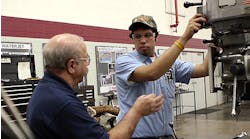In recent weeks a number of readers have noted to me – apparently without any coordination — how frequently I reference history in order to make an example or demonstrate a point. I’m not surprised: I think history is full of details that inform, explain, and entertain, and I find it useful to me in all those ways, even when I’m not trying to craft words into arguments. More important, I think the present age is not only ill-informed on the facts of history but is effectively disdainful of them, with individuals’ attitudes that range from indifference to contempt for the precedents set by the billions of souls who have lived up until now.
This would not be an altogether bad situation if the result were precisely the opposite of what I have described: if as a society we would heartily embrace the prospect of a joyful and prosperous future, working without complaint to address all the shortcomings we see. (Just a bit of historical review will note that this is not so far fetched: the 17th through 19th centuries offer many examples of utopian societies that separated themselves in their efforts to live in what they felt was a more wholesome present, anticipating their ideal futures.)
Instead of either of these possibilities, there is the dull and numbing reality that is our present time. We live in a world that is obsessively focused on now. More specifically, the focus is on the “self,” and how frequently and magnificently one can be rewarded, celebrated, stimulated, or even just recognized. This is most obviously true in our methods of communication – where an instant reaction is given more consideration than a thoughtful one, and being widely recognized is more valuable than being well regarded.
But, these realities define many other habits that shape behavior too, from commercial and financial activities to consumer choices and social behavior. Anything new or not-yet-experienced is given a default advantage over that which has been tried. Most unnerving, by being so attuned to self-declaration and self-promotion, we lose perspective on our future direction.
In an era that is defined economically by debt and slow growth, socially by gossip and scandal, and intellectually by trivia and invective, it seems to me that we could find more insight by culling the past for examples, good and bad.
We’d also do well to turn a more reflective, less reactive mind, toward what is going on around us now. In this issue, we make a small effort in that direction with our annual turn through 12 process technologies that shape the metalcasting industry, in the expectation that these ideas may ignite new insights or better prospects.








